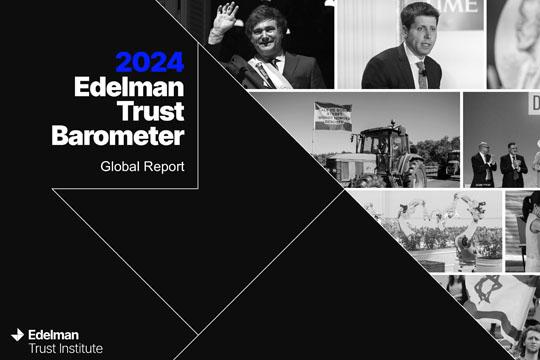- Global (EN)
- Africa (EN)
- Australia (EN)
- Belgium (EN)
- Brasil (PT)
- Canada (EN)
- Canada (FR)
- China (CN)
- France (FR)
- Germany (DE)
- Germany (EN)
- Hong Kong, China (EN)
- India (EN)
- Indonesia (EN)
- Ireland (EN)
- Italy (IT)
- Italy (EN)
- Japan (JP)
- Korea (KR)
- Latin America (ES)
- Malaysia (EN)
- Middle East (EN)
- Netherlands (EN)
- Spain (ES)
- UK (EN)
- Global (EN)
- Africa (EN)
- Australia (EN)
- Belgium (EN)
- Brasil (PT)
- Canada (EN)
- Canada (FR)
- China (CN)
- France (FR)
- Germany (DE)
- Germany (EN)
- Hong Kong, China (EN)
- India (EN)
- Indonesia (EN)
- Ireland (EN)
- Italy (IT)
- Italy (EN)
- Japan (JP)
- Korea (KR)
- Latin America (ES)
- Malaysia (EN)
- Middle East (EN)
- Netherlands (EN)
- Spain (ES)
- UK (EN)
- Innovation is accelerating in society, from gene-based medicine to artificial intelligence. When innovation is mismanaged, it leads to people feeling left behind by a broken system.
- Resistance to innovation is politicized. In the U.S., people on the right side of the political spectrum are 40 points more likely to reject innovation than those on the left.
- Implementation is as important as invention. Effective implementation is inclusive, considered, and measured, with clear benefits to the people it impacts.
The 2024 Edelman Trust Barometer reveals a new paradox at the heart of society. Rapid innovation offers the promise of a new era of prosperity, but instead risks exacerbating trust issues, leading to further societal instability and political polarization.
Innovation is accelerating – in regenerative agriculture, messenger RNA, renewable energy, and most of all in artificial intelligence. But society’s ability to process and accept rapid change is under pressure, with skepticism about science’s relationship with Government and the perception that the benefits skew towards the wealthy.
There is one issue on which the world stands united: innovation is being poorly managed – defined by lagging government regulation, uncertain impacts, lack of transparency, and an assumption that science is immutable. Our respondents cite this as a problem by nearly a two to one margin across most developed and developing countries, plus all age groups, income levels, educational levels, and genders. There is consensus among those who say innovation is poorly managed that society is changing too quickly and not in ways that benefit “people like me” (69%).
Many are concerned that Science is losing its independence: to Government, to the political process, and to the wealthy. In the U.S., two thirds assert that science is too politicized. For the first time in China, we see a contrast to their high trust in government: Three-quarters of respondents believe that Government and organizations that fund research have too much influence on science. There is concern about excessive influence of the elites, with 82% of those who say innovation is managed poorly believing that the system is biased in favor of the rich – this is 30 percentage points higher than those who feel innovation is managed well.
During the Covid-19 pandemic, many sought advice on the efficacy of vaccines from friends and family over doctors and scientists -- this is when the politicization of science intensified, and now it is accelerating. In the U.S., there is now a stunning 41-point gap between Republicans and Democrats in their willingness to accept innovations such as green energy, AI, gene-based medicine (such as mRNA vaccines), and GMO foods. This political polarization on matters scientific is evident in other countries too; there are large Right-Left gaps on rejection of innovations in Australia (23 points), Germany (20 points), and Canada (18 points).

But like innovations before it, AI faces the same challenge of public confidence.

We hypothesize that this is the latest manifestation of what we have been measuring since the global economic crisis of 2008 – the decline in institutional trust, the gap between mass and elite classes, and the info-demic. Now, we also see further dispersion of authority beyond classic experts, such that a lay person, described in our study as “a person like me,” is considered as trusted as a scientist to tell the truth about new innovations and technologies (74% each), and a slightly more trusted source (72%) than a scientist (67%) on matters of innovation, by those skeptical of the pace of change.
Business has a stronger platform to deliver scientific innovation than government. Overall, the 2024 Edelman Trust Barometer again finds that the only trusted institution is Business (63 percent trust), far ahead of Government based on perception of high competence (Business scores 52 points higher) and ethics (Business scores 32 points higher). Indeed, it is Business that is most trusted on ensuring the introduction of innovations is well-managed (59 percent trust) and to manage change in our social values (57%).
Business and business leaders, however, should not take public trust for granted. Business’ trusted status in society is not a given, and without active management could go the same way as trust in Government. The trigger could be mismanagement of innovation, where past failures are still visible today.
In the early '70s, business rolled out Genetically Modified Organisms (GMOs), lauding cost savings and sustainability benefits. But this introduction was poorly managed, with little consideration of public fears, and so the phrase, Frankenfoods, entered the vocabulary. It took just one word to fundamentally damage scientific progress. Fifty years later, despite even greater need for GMOs due to growth in population and sustainability challenges, 58% of respondents in the Trust Barometer are inclined to reject GMO products by personally avoiding them or even boycotting.
The biggest innovation of today is Artificial Intelligence (AI). AI already even polarizes the experts. Alphabet CEO Sundar Pinchai shares his optimism, “AI is one of the most important things humanity is working on. It is more profound than, I don’t know, electricity or fire,” He also shares his concern: “Fire can cook our food, and it can also burn our house down.” Consider the recent board battle at OpenAI over the proper speed of implementation of the technology. This is also a matter of vital global interest; there is deep concern about disinformation in the 64-plus election campaigns scheduled in 2024.
But like innovations before it, AI faces the same challenge of public confidence. The initial findings are not good; the 2024 Edelman Trust Barometer shows that 43% of respondents will reject it, avoiding products and services that incorporate it, if they believe innovation is being managed poorly. The mass class divide on trust in AI technology is 16 points in the U.S. – 43% trust from high income respondents and 27% trust from low-income respondents.
Business has been thrust into societal issues such as geopolitics, diversity and inclusion and the climate emergency, filling the void left by paralyzed and divided Government. In 2024, every business must embrace responsible innovation that is supported by and understood by the public.
The four steps to proper acceptance of innovation are:
- Be inclusive – Speak to the mass population as much as to the informed elites. Use both experts and non-traditional authority figures.
- Consider the impacts – Solve for the side effects, which could include the types of jobs, nature of work and training.
- Show the benefits – Don't assume innovation is a net positive. Explain what progress means for your business and workforce.
- Be measured – Have a pace of adoption that’s equivalent to society’s ability to process the change.
Then we can reap the benefits of growth based on belief in a functioning and fair society.
Edmund Burke, English parliamentarian, warned at the time of the French Revolution, “It is with infinite caution that any man should venture upon pulling down an edifice, which has answered in any tolerable degree for ages the common purposes of society, or on building it up again, without having models and patterns of approved utility before his eyes.” Ensuring that the process of acceptance is given as much attention as the innovation itself is the true test of whether Business will continue to earn its place as the most trusted institution.
Richard Edelman is CEO.




